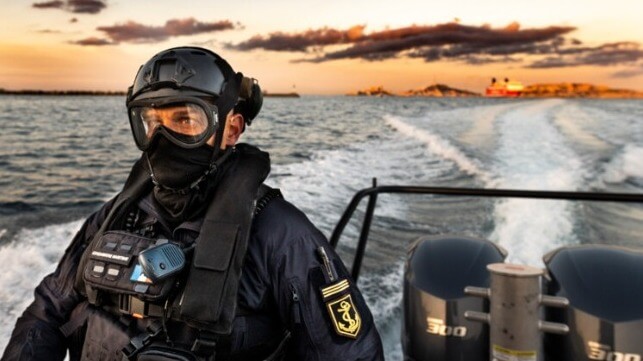New Tactics Could Curb Immigrant Rubber-Boat Traffic in English Channel

Illegal immigrants continue to make passage across the 25-mile-wide English Channel to claim asylum in the United Kingdom.
In recent months, the number of refugees making landfall in the UK has been rising. According to British government figures, 45,264 refugees made the crossing in 2024. More than 39,000 have crossed so far this year, and if the trend continues and undetected crossings are also included, the total by the year's end will be greater than in 2024, and probably higher than in any previous year.
The upward trend in crossings is despite the further agreement with France in July to curb the crossings, for which assistance the British government funds the French efforts.
Notwithstanding the agreement and the payments, the numbers crossing the Channel since July have increased further. The French police claim to be stopping about a quarter of all crossings, by intercepting refugees and the rubber boats on the beach before they reach the water.
Under French law, police are not allowed to intercept boats at sea, even if they are dangerously overloaded, have unqualified crews and fail to meet basic safety standards. Although most refugees are young men, smugglers normally include some women and children as passengers on each rubber boat attempting the crossing, in order to increase the likelihood that boats which are swamped will be rescued. A dip in the English Channel in winter can quickly lead to death through hypothermia, and in any case most refugees cannot swim.
The English Channel is one of the world's busiest shipping lanes, and the rubber boat traffic also presents a considerable hazard to shipping.
The French gendarmerie however are promising to introduce new tactics, using nets to foul the propellers of the rubber boats just offshore. This tactic has been designed to bring the rubber boats to a halt gently, without risk of capsizing, but presents considerable boat handling challenges if the sea state is anything other than flat calm.
The British government's efforts to stop the cross-channel traffic is based on the concept of "stopping the smuggling gangs." But given that the lure of free food, hotel accommodation and healthcare is a powerful pull factor for would-be refugees - an offering much more attractive than alternatives offered elsewhere in Europe - smuggler gangsters taken down are quickly replaced by others keen to capitalize on average passage payments of $3,000 per person, a very lucrative criminal activity.
